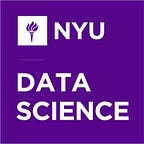Unveiling the Mathematical Foundations of Data Science: CDS’ MaD Seminar Series
This post is part of a series exploring CDS Seminars
Transforming raw data into actionable insights requires more than just algorithms — it takes creativity, collaboration, and a deep understanding of mathematics.
That’s the philosophy behind CDS’ Math and Data (MaD) seminar series, which brings together researchers from across disciplines to explore the mathematical foundations of data science. The series covers topics ranging from classical statistics to cutting-edge machine learning, united by a shared set of mathematical tools and techniques.
“The MaD seminar series has done a lot to shape the research interests of the MaD group,” said Jonathan Niles-Weed, Assistant Professor of Mathematics and Data Science at CDS and one of the seminar’s organizers. “Everyone is coming together, learning about new things, and it’s a chance for members of the group — faculty, postdocs, and students — to interact.”
Founded in 2016 by Associate Professor of Mathematics and Data Science and Interim CDS Director Carlos Fernandez-Granda, Associate Professor Joan Bruna, and former Assistant Professor of Mathematics and Data Science Afonso Bandeira (now at ETH Zurich), the series reflects the diverse interests of the MaD faculty, which also includes Assistant Professors Yanjun Han and Qi Lei, and Professor Julia Kempe — all CDS members. “As colleagues have come in, we’ve been able to grow the seminar by including things that are close to their interests,” Niles-Weed said. “It’s been one of our longest-running seminars at CDS.”
Recent talks have showcased the breadth of the series, from MIT’s Jin-Peng Liu on efficient quantum algorithms for linear and nonlinear dynamics, to Rutgers’ Cun-Hui Zhang on adaptive inference in sequential experiments, and Zach Izzo, a researcher in the machine learning department at NEC Labs North America. “It really demonstrates the range of the seminar,” Niles-Weed said.
Upcoming speakers further illustrate the series’ interdisciplinary approach. Tristan Buckmaster, Professor of Mathematics at NYU, scheduled for April 18, uses techniques from deep learning to study fluid dynamics and turbulence, with applications to climate science. “It may not sound like traditional data science, but it’s something that’s really interesting to everyone,” Niles-Weed said.
In contrast, MIT Professor Guy Bresler, scheduled for May 9, approaches data science from the perspective of theoretical computer science, exploring interactions between statistical problems and computational complexity. “It’s a totally different end of data science,” Niles-Weed explained. “Rather than starting from an applied problem like fluid mechanics, it’s starting from really core questions of algorithm design and asking how we can address those questions in the context of statistical problems.”
The MaD seminar has also served as a launching pad for rising stars in the field. “We get people all the way from the most junior to the most senior,” Niles-Weed said. “The seminar has been a chance for younger faculty to introduce themselves and their research when they first come to NYU.”
By bringing together researchers with diverse backgrounds and perspectives, the MaD seminar series is helping to push the boundaries of what’s possible in data science. “It’s a wonderful seminar,” Niles-Weed said. “And it’s one that I think will continue to shape the future of the field.”
By Stephen Thomas
